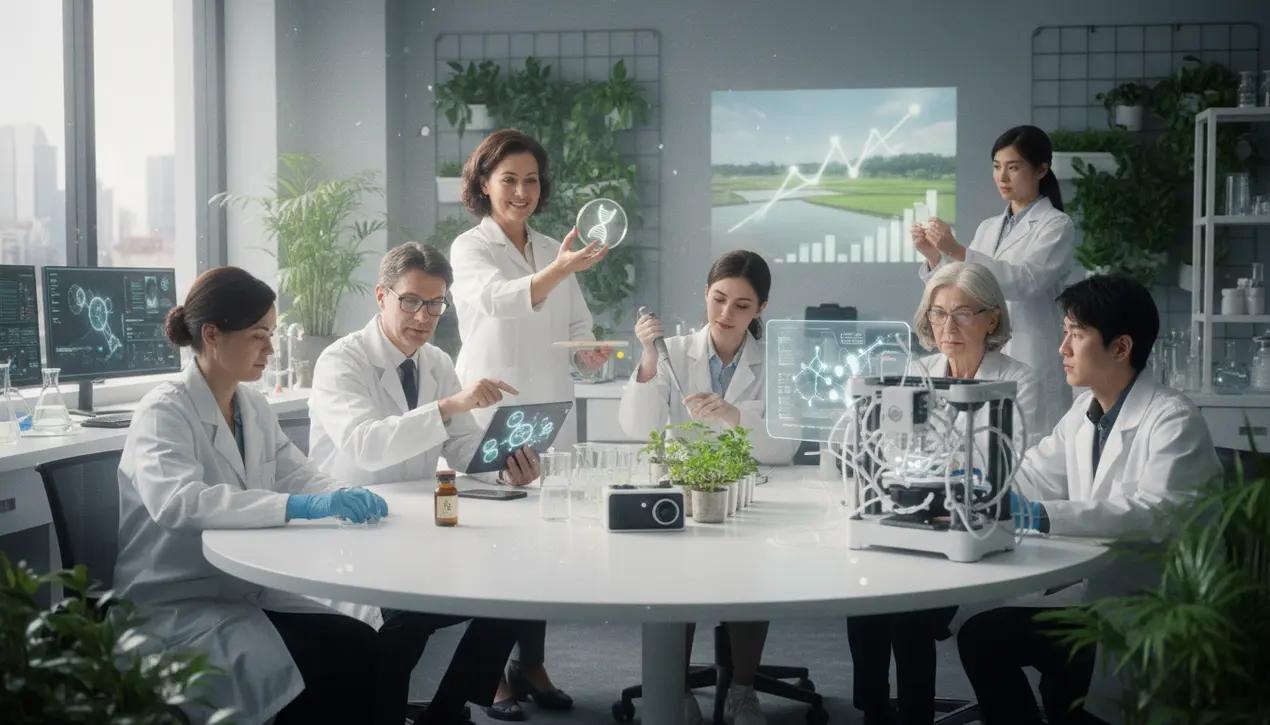
SciencebiologySynthetic Biology
The future of global health is at stake. These 7 pioneers could revolutionize it.
KE
Kevin White
3 hours ago7 min read1 comments
The future of global health and development hinges on a precarious balance of funding, political will, and, most critically, the kind of radical innovation that can leapfrog decades of stagnation. While the last century delivered monumental victories—from the rollback of malaria to the advent of mRNA vaccines—this progress is now threatened by a global retreat in foreign aid and the relentless pressure of novel challenges like antimicrobial resistance and climate-driven food insecurity.This year’s cohort of innovators understands that the old playbook is insufficient; they are the architects of a new biological toolkit, engineering solutions at the molecular level to safeguard human well-being. Consider the work of César de la Fuente at the University of Pennsylvania, whose Machine Biology Group is pioneering the field of AI-driven antibiotic discovery.In a stunning feat of 'molecular de-extinction,' his team resurrected antimicrobial peptides from Neanderthals, using AI models to predict and then synthesize these ancient molecules, which showed promising efficacy in preclinical models. This isn't just cool science; it's a desperate race against a clock that ticks every 15 minutes with another US death from an untreatable infection.With Big Pharma largely abandoning antibiotic development due to poor financial returns, de-extinction platforms like de la Fuente's APEX model, which mines the proteomes of everything from ancient penguins to magnolia trees, represent a paradigm shift in how we source our next-generation medicines. Simultaneously, in the fields of central Kenya, Esther Wanjiru Kimani is deploying a different kind of intelligence.Her solar-powered, AI-driven devices scan crops for the earliest signs of blight, sending text alerts to farmers and preventing losses that can decimate a family's livelihood. This application of machine learning is a world away from the abstract algorithms of Silicon Valley; it's a tangible, life-saving intervention that has already boosted yields by 40 percent in trials.Her work, recognized with the Africa Prize for Engineering Innovation, exemplifies a crucial principle: the most profound biotech innovations are often those rooted in local, immediate need. This theme of building capacity from the ground up is echoed by Gagandeep Kang, whose decades of work on rotavirus vaccines transformed India's public health landscape.She didn't just help develop Rotavac; she built the entire translational infrastructure—the clinical trial protocols, the ethical frameworks, the evidence base—that allowed India to not only deploy the vaccine nationally but also export it. Her measured, data-driven voice during the Covid-19 pandemic, where she publicly challenged the premature approval of Covaxin, underscored that trust is as vital a component of public health as the vaccine itself.Now at the Gates Foundation, she continues to fortify the unsexy but critical plumbing of global health systems. Further expanding this biological frontier is Geoffrey Otim, who is championing synthetic biology across Africa through his organization, SynBio Africa.In a continent historically defined by resource extraction, synbio offers a path to value creation, from engineering microbes to produce sustainable aviation fuel to developing local biomanufacturing capabilities. Otim’s founding of East Africa's first iGEM team is a foundational investment in the continent's scientific sovereignty, ensuring that Africa is not merely a consumer of global biotech but a primary innovator.This vision of self-reliance is shared by Soham Sankaran, founder of the Indian mRNA startup PopVax. Driven by the inequities of the AIDS era, Sankaran is building a platform for broadly protective vaccines that target conserved viral regions, moving beyond the strain-by-strain chase.With backing from the NIH, the Gates Foundation, and BARDA for a needle-free patch delivery system, PopVax is demonstrating that the Global South can not only manufacture but also design the next generation of biomedical countermeasures. Meanwhile, in the fight against agricultural pests, Maxwell Scott is applying CRISPR to a classic problem: the New World screwworm.His lab has engineered male-only lines and gene drives that could offer a more sustainable and potent alternative to the decades-old sterile insect technique, a 'green technology' that uses the pest against itself. And in the face of climate change, Yibo Li’s discovery of a temperature-sensitive gene in rice is a masterclass in preemptive adaptation.By identifying and silencing this genetic vulnerability, his team has created rice strains that maintain yield and quality under heat stress, a breakthrough with staggering implications for global food security in a warming world. Collectively, these seven pioneers are not just solving discrete problems; they are rewriting the code of global health resilience, proving that the most powerful tools for human survival will be those we engineer from life itself.
#global health
#antibiotic resistance
#AI
#vaccine development
#synthetic biology
#food security
#featured
Stay Informed. Act Smarter.
Get weekly highlights, major headlines, and expert insights — then put your knowledge to work in our live prediction markets.
Related News
Comments
Loading comments...
© 2025 Outpoll Service LTD. All rights reserved.